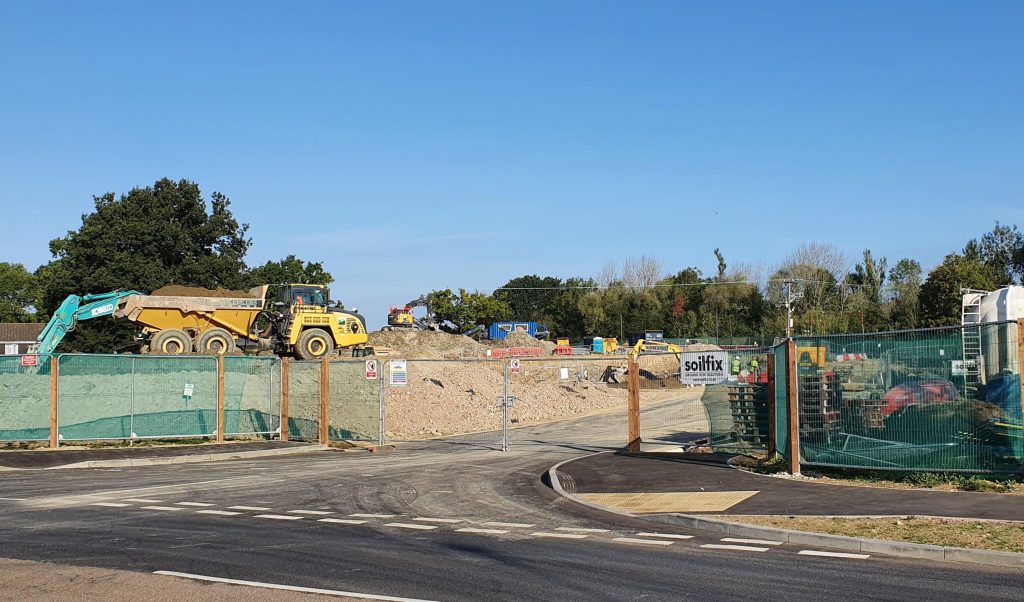I was pleased that at last nights Council meeting was able to agree my amended motion criticising Government planning changes, thanks to Cllr Pete Bradbury from the Conservatives for seconding the revised composite motion which was supported by all members of Mid Sussex District Council. The motion outlines some of the reason why councillors from all parties are concerned about the government proposals, and is reinforced by the evidence the Council circulated Tuesday which highlighted some of the shortcomings of the government proposals outlined in Changes to the Current Planning System.
Where is the rationale for these changes? We know our planning department is efficient, application timescales are kept to, and 90% of applications are agreed – in line with most other local authorities. The Council’s own submission says developers are sitting on landbanks sufficient to build one million houses, none of the proposals provide an incentive for developers to build more houses, indeed zoning could allow them to cherry pick the most profitable sites.
Government proposals for housing targets replace a locally agreed assessment of housing need with a nationally set one size fits all formula that sets a target regardless of local circumstances. New housing targets are based on a formula that takes no account of housing need, the availability of employment, environmental constraints, or any consideration about the local infrastructure required to support new housing.
The proposal to allow developers of up to 50 units to no longer make s106 contributions for social housing for “an initial period of 18 months”, will further undermine the link between new development and any benefit to the wider community. Last year 94% of the 211 residential applications in Mid Sussex were on sites below 50 units. The proposals effectively end the development of new social housing from this source of funding for our villages. Since 2015/16, Mid Sussex has itself obtained 146 affordable homes from sites with less than 50 units – NOW THE GOVERNMENT IS PROPOSING TO GIVE ANY FUTURE HOMES BACK TO DEVELOPERS INSTEAD OF THE HOMELESS!
Indeed as the Council’s response to the proposal testifies this change could even be counterproductive to its stated aim of helping smaller developers given the likely knock on effect of increased land prices reducing their ability to compete for such sites. As the Council acknowledges, if the government is serious in aiming to build more houses, the best way would be “to introduce financial penalties for developers who sit on sites with planning permission instead of building on them.
At the same time the proposals in the Planning White Paper significantly reduce any local say in planning. The proposed changes will remove any consultation on the detail of planning applications, the new zoning system will mean an area is approved for development without oversight of any detail relating to an individual planning application’s nature or layout. Residents will have one chance to comment on a district plan outlining basic principle, and then eight years later may wake up to a new development they have had no say in. The impact of new development can often be substantially improved by altering small details– changing the exact siting of an access road or the aspect of new houses overlooking their neighbours – can significantly improve a scheme, both for its neighbours and its new occupants. Denying local people their say on the detail of new development is fundamentally anti-democratic.
We already know housing developers have the ear of the housing secretary, Kingswood, a scheme for 2,850 homes in Horsham, is being proposed by a hedge fund billionaire who has given £4.6m to the Conservatives.
Further the existing means of requiring developers to pay for local infrastructure will be replaced, the proposed new nationally set one size fits all levy would replace locally negotiated s106 payments, losing the flexibility of the current system and potentially meaning developers pay less. The new levy will not be site specific and therefore the infrastructure required for new developments may not necessarily be funded by the developers who profit from it, and therefore we are more likely to see infrastructure added as an afterthought, not as an integral part of any new housing development.
None of these changes will necessarily mean more houses will be built. They will allow more choice for developers on which site they build, and bigger profits for their shareholders. They will take power away from local councils, and from the local people they serve, and they will mean less sustainable more divided local communities. The Royal Institute for British Architects called the proposals shameful and suggested that they will do almost nothing to guarantee delivery of affordable, well-designed and sustainable homes, let us hope the government and our local MP’s will listen and ditch these ill-thought out proposals.

